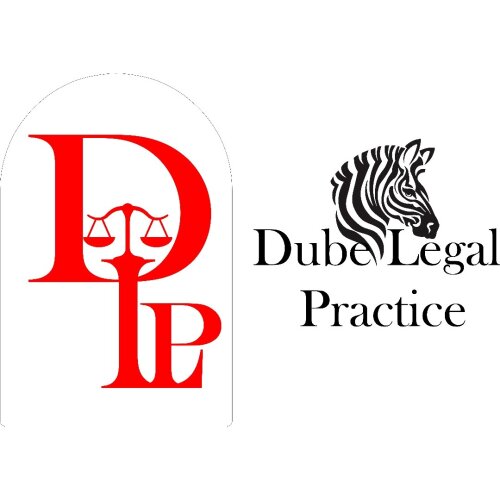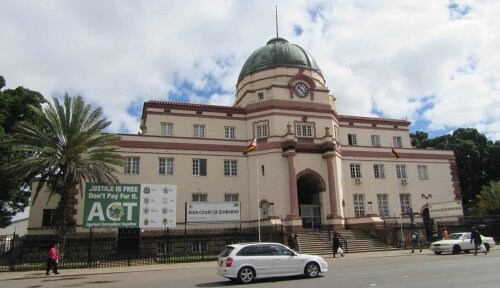Best State, Local, and Municipal Law Lawyers in Bulawayo
Share your needs with us, get contacted by law firms.
Free. Takes 2 min.
List of the best lawyers in Bulawayo, Zimbabwe
About State, Local, and Municipal Law in Bulawayo, Zimbabwe
State, local, and municipal law refers to the legal frameworks and regulations established by different levels of government in Zimbabwe - the national government, provincial authorities, and local councils. In Bulawayo, this group of laws governs everything from the provision of public services to the management of land, public order, and municipal taxes. Municipal and local government laws define the powers and responsibilities of the Bulawayo City Council and provide guidelines for residents, businesses, and visitors about their rights and obligations within the city. These laws ensure that Bulawayo operates smoothly, providing essential services like water supply, housing, sanitation, waste disposal, and urban planning.
Why You May Need a Lawyer
Engaging a lawyer who understands state, local, and municipal law can be crucial in several situations. Residents and business owners in Bulawayo may need legal assistance when:
- Challenging a city council decision or fine.
- Applying for or contesting building, trading, or operating permits.
- Facing property disputes involving municipal boundaries or zoning laws.
- Negotiating or disputing municipal rates, taxes, or service charges.
- Participating in tenders or contracts with the City of Bulawayo.
- Raising complaints against public bodies or officials over service delivery.
- Seeking compensation for personal or property damage due to municipal actions.
- Resolving employment disputes with local government bodies.
A lawyer experienced in this field provides guidance, represents clients in proceedings before local councils or courts, and helps navigate the complexities of local statutes and by-laws.
Local Laws Overview
Bulawayo’s local laws are shaped by national statutes, such as the Urban Councils Act, but the city also sets specific by-laws to address unique urban challenges. Key aspects include:
- Urban Planning and Land Use: Regulations govern property sub-division, land use (residential, commercial, industrial), and development approval processes.
- Building Control: The city issues permits for construction and renovations, setting standards for safety, design, and environmental compliance.
- Health and Sanitation: By-laws regulate waste management, water supply, sewerage disposal, and public health safeguards.
- Business Licenses and Permits: Requirements exist for trading, hawking, markets, and public events, including licensing and zoning compliance.
- Municipal Rates and Taxes: Property owners must pay rates based on valuation rolls. Disputes can arise on classifications, assessments, or service provisions.
- Traffic and Public Order: The city sets and enforces rules on parking, public gatherings, nuisance, noise, and other conduct in public spaces.
- Public Housing and Markets: Laws cover allocation of municipal housing, operation of city markets, and dispute resolution mechanisms for tenants and vendors.
Frequently Asked Questions
What is the Bulawayo City Council, and how does it influence local law?
The Bulawayo City Council is the local authority responsible for governing the city. It issues by-laws and implements policies affecting residents, businesses, and visitors. Its powers are granted by national legislation and local charters.
How do I challenge a city council decision?
You can formally appeal council decisions by submitting a complaint or objection in writing. If unresolved, seek further review through statutory tribunals, the Ministry of Local Government, or the judicial system with the help of a lawyer.
How are municipal rates calculated in Bulawayo?
Rates are calculated based on the value of your property, as determined by the city’s valuation roll. The type of property and its use also affect the rate amount.
May I build or renovate structures on my property without permission?
No. The city requires property owners to obtain building permits before commencing construction or renovations to ensure compliance with safety and zoning regulations.
What can I do if I receive a fine or penalty from the city?
You have the right to appeal fines or penalties. Follow the process outlined on your notice and consider consulting a lawyer to challenge the decision if you believe it is unwarranted.
How do I obtain a trading license for my business?
Apply for a trading license through the City of Bulawayo’s Licensing Department. Your business must comply with zoning and health regulations to qualify for a license.
What are my rights if the city interrupts water or other municipal services?
The council has the responsibility to provide essential services. Prolonged or unexplained interruptions can be challenged. Document the issue and, if unresolved, seek legal advice or escalate to the relevant ministry.
Can the city evict me from my property or municipal housing?
Evictions must follow lawful procedures, respecting your legal rights. If you face eviction, consult a lawyer immediately to ensure due process is followed and your rights are protected.
Who handles complaints against city officials or council workers?
Complaints can be lodged with the City of Bulawayo’s Customer Care or Complaints Department. For unresolved or serious cases, contact the Office of the Ombudsman or seek legal representation.
What is the process for resolving land or boundary disputes involving the city?
Land and boundary disputes typically begin with negotiation or mediation through the city’s Land Administration Department. If not resolved, the case may proceed to the courts. Legal representation is recommended for complex matters.
Additional Resources
If you need information on state, local, or municipal law in Bulawayo, the following resources may assist:
- Bulawayo City Council: Main offices provide information on by-laws, permits, rates, and service delivery.
- Ministry of Local Government and Public Works: Oversees local government policy and handles high-level complaints or disputes.
- The Law Society of Zimbabwe: Helps you find legal practitioners experienced in local government law.
- Zimbabwe Lawyers for Human Rights: Provides support and information on legal rights in relation to civic issues.
- National Association of Non-Governmental Organisations (NANGO): Offers advocacy and referral services for various community and legal matters.
- Office of the Ombudsman: Handles maladministration and abuses of power in public entities.
- Civic education programs and community legal aid centres: Often provide free legal information and assistance on local law matters.
Next Steps
If you require legal assistance regarding state, local, or municipal law issues in Bulawayo:
- Gather all relevant documents and evidence related to your issue as soon as possible.
- Contact the appropriate city department or authority to try and resolve the matter informally.
- If the issue remains unresolved or you face legal proceedings, consult a lawyer experienced in state, local, and municipal law. Seek referrals through the Law Society of Zimbabwe or local legal aid centers.
- Document interactions with municipal authorities, including written correspondence and meeting notes.
- Be aware of time limits for appeals, objections, or claims to avoid missing critical deadlines.
- If your rights are violated or you face repeated challenges, escalate your complaint to higher authorities such as the Ombudsman or relevant ministry with proper legal backing.
Early legal advice often results in a better outcome and helps you understand your rights and responsibilities under local laws. Take proactive steps and do not hesitate to seek professional legal support when dealing with complex or urgent matters.
Lawzana helps you find the best lawyers and law firms in Bulawayo through a curated and pre-screened list of qualified legal professionals. Our platform offers rankings and detailed profiles of attorneys and law firms, allowing you to compare based on practice areas, including State, Local, and Municipal Law, experience, and client feedback.
Each profile includes a description of the firm's areas of practice, client reviews, team members and partners, year of establishment, spoken languages, office locations, contact information, social media presence, and any published articles or resources. Most firms on our platform speak English and are experienced in both local and international legal matters.
Get a quote from top-rated law firms in Bulawayo, Zimbabwe — quickly, securely, and without unnecessary hassle.
Disclaimer:
The information provided on this page is for general informational purposes only and does not constitute legal advice. While we strive to ensure the accuracy and relevance of the content, legal information may change over time, and interpretations of the law can vary. You should always consult with a qualified legal professional for advice specific to your situation.
We disclaim all liability for actions taken or not taken based on the content of this page. If you believe any information is incorrect or outdated, please contact us, and we will review and update it where appropriate.










